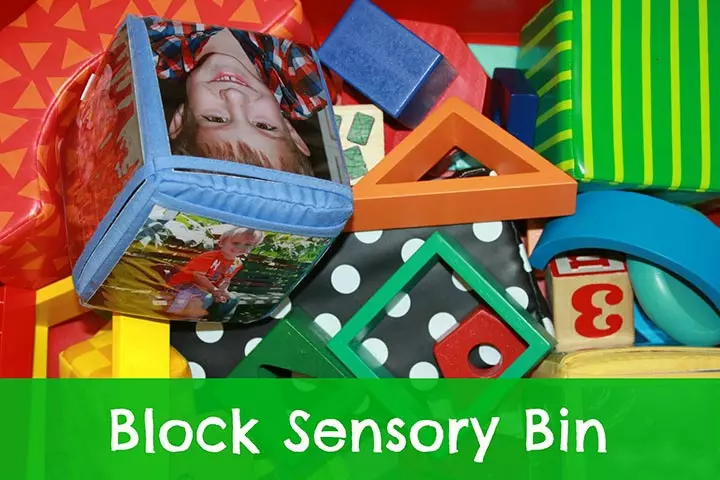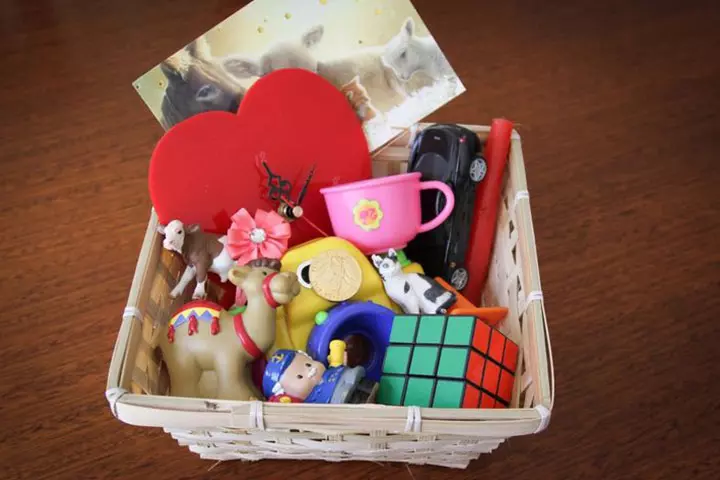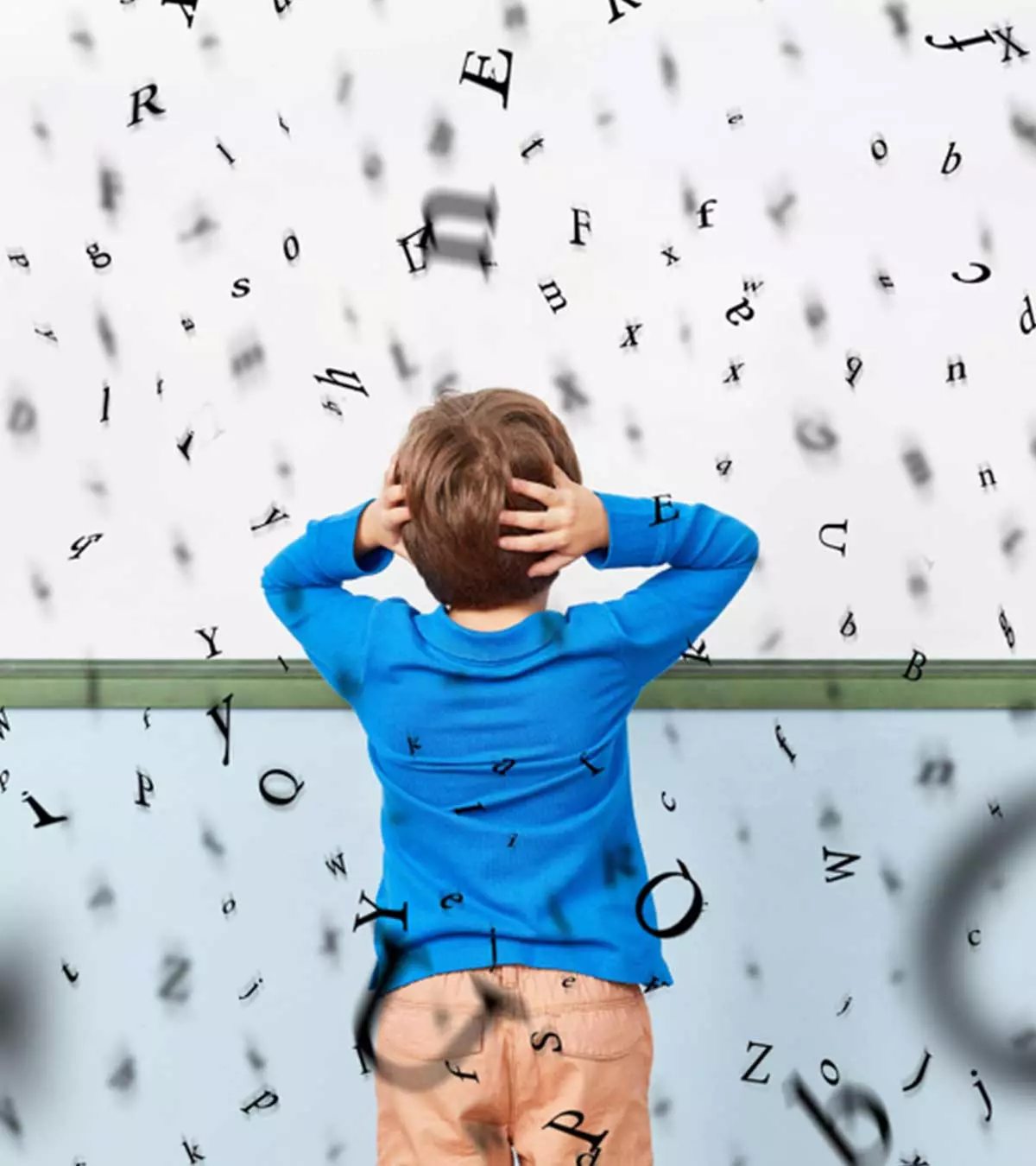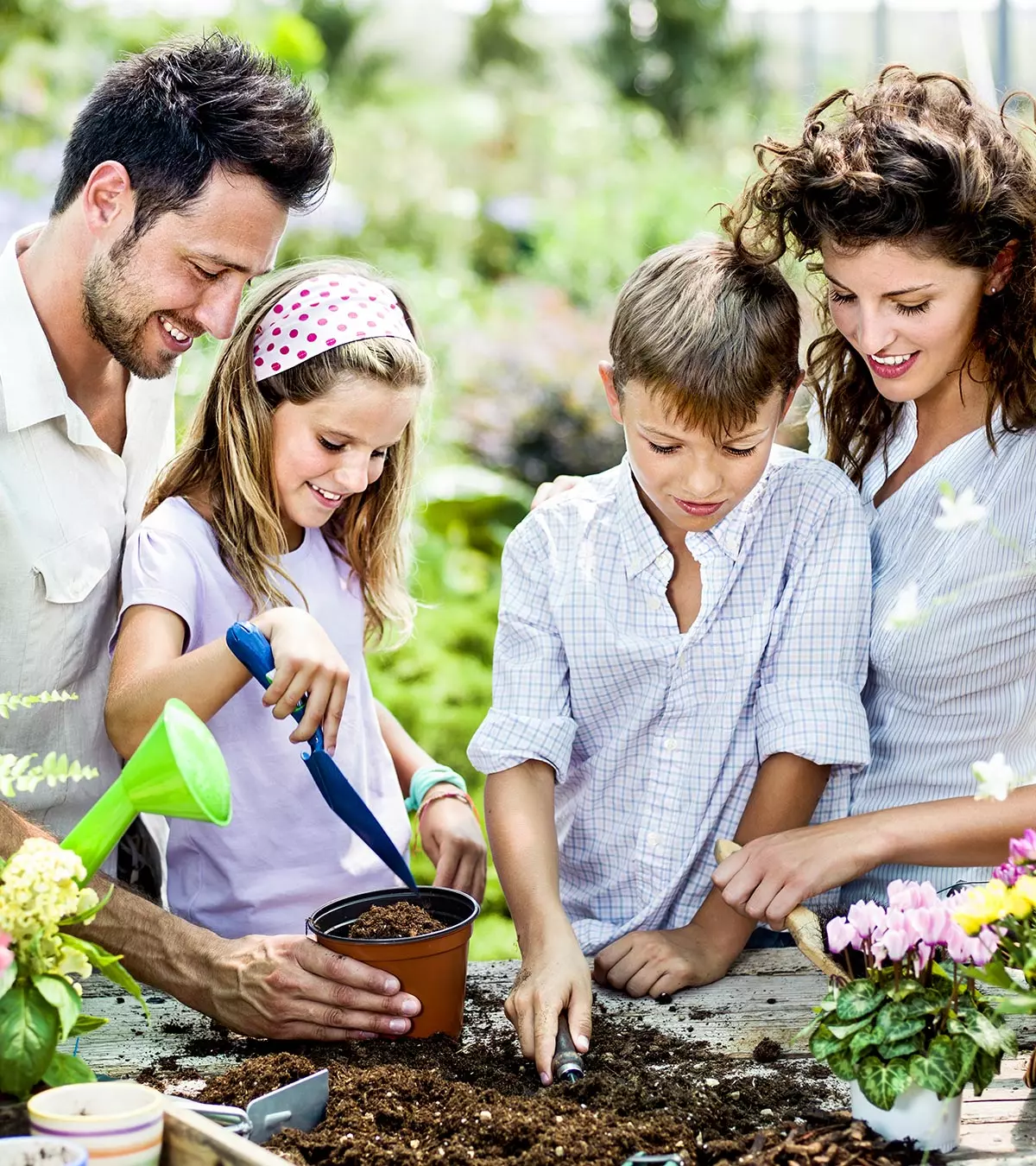

Image: Shutterstock

Bringing new life into the world is quite a miracle. The journey begins when a baby is born, and it fills our hearts with love and pride. To help your baby experience life to its fullest, you may consider having your child engage in sensory activities. Since our senses can help us experience life, emotions, feelings, and the world around us, it’s important to awaken our baby’s senses and introduce them to the world around them (1).
This post presents several activities that can help your child experience their world and potentially learn from it.
Why Are Sensory Activities Important?
So you may be wondering why sensory activities are considered so important? Well, that’s because before your tiny tot can open up their wrist and grab onto things, their senses such as smell, taste, sight, hearing, and touch can unfurl and open them up to new experiences.
Benefits Of Sensory Activities For Infants:
Introducing your tiny baby to the world around him can be satisfying and thrilling. It is fun to make your baby’s entrance into every phase unique and extraordinary (1) (2).
- Sensory activities are a great way of helping your baby know the world through their senses.
- It helps them make a better sense of the world too.
- It helps your baby examine, explore and even categorize.
- Helps in language acquisition.
- Creates awareness about how the world operates.
- It helps their overall development.
- It helps in their motor skill development.
- These activities are said to have a calming and therapeutic effect on your baby.
Sensory Activities For Babies:
Sensory activities must be planned in a way that they help invoke all the senses equally. There are thousands of different sensory activities possible. Here we have compiled 6 basic sensory activities for infants to explore:
1. Sensory Board:
Take a simple card board or any firm surface (3).
- Now clip on clothes, things like paper, plastic, fur and even grains onto it.
- Help your child touch these different textures and each time he touches one you must help him by introducing the texture’s name to him.
- This activity can also invoke your baby’s sense of sight.
- You can even clip torn guitar strings to it.
2. Colored Ice Cubes:
Image: Via Pinterest
Fill up an ice tray with liquids of different colors, sizes and textures (2).
- Once frozen, let your baby explore these.
- Help him differentiate between colors, size and textures.
- You can also make your baby feel plain water, warm water, and ice to help him feel the difference.
3. Building Blocks:
Image: learnplayimagine.com
Building blocks are the oldest and yet the best when it comes to infant sensory activities (4).
- They sharpen your baby’s sight, reasoning, touch and muscle sense too.
- Various colors, shapes and sizes help your baby categorize.
4. Texture Balls:
Image: Via Pinterest
If your baby loves to kick it off with the ball, they sure will love this sensory activity (5).
- Place various types of balls in your baby’s play area.
- Include all sizes of balls in different colors, texture and even weight.
5. Foods:
Image: Via Pinterest
Foods not only introduce textures but tastes too (6)!
- Help your baby learn about textures of different kinds of food.
- You can teach your baby the names that describe various tastes.
- Make your baby feel pasta, noodles, pancakes, breads, biscuits, pastries, grains and as many other textured-foods you want.
- Add more foods with stronger smells to help your baby learn more about sense of smell.
6. Sound Basket:
Image: Via Pinterest
Create a sound basket for your baby (7).
- Put things that make different noises and sounds in the basket.
- Help your baby explore all sounds.
- Make every object different from each other to help develop your baby’s sight sense too.
- You can add things like plastic bottles, paper cups, a small instrument, an empty can or small tin, and small metal and plastic spoons.
- Your baby will surely bang spoons together and on other objects too.
Enjoy Spending Time With Your Baby:
Sensory activities can be really powerful. They are not only critical for your baby’s development but for your bonding too (8).
- Many activities can be done by your baby alone. But it is always better to accompany them and help them share their experience with you.
- Be patient and repeat as many times as possible.
- The more you repeat these activities, the better it will be for registering in your baby’s brain.
- Engage with these activities through a conversation. This will help your baby understand the word associated with each sense better and help him communicate later.
Frequently Asked Questions
1. What are the best practices for sensory play?
While your toddler engages in sensory play, you could encourage it by following the best practices for the play. For example, don’t force your child to touch anything, but allow them the freedom to explore when they are ready. Also, don’t interfere with their play for fear of making a mess. Instead, set up the sensory play station outdoors to avoid this issue.
2. Is coloring a sensory activity?
Coloring can be considered a sensory activity since the child needs to hold on to a crayon and exert varying amounts of pressure to color on paper.
Sense organs help babies to feel the world around them. Therefore, introducing sensory activities helps infants explore their surroundings, categorize objects, acquire language, and create awareness. For example, activities such as sensory boards, colored ice cubes, and textured balls help them learn about colors and textures. So, regularly engage your children in different sensory play activities to create an enjoyable learning experience. Repeat these activities several times, so your baby associates with them and learns the concepts better.
References
- 12 benefits of sensory play with activities you can do at home.
https://theivyacademy.org/12-benefits-of-sensory-play-with-activities-you-can-do-at-home/ - Sensory Play.
https://accessabilities.org/wp-content/uploads/2025/05/Sensory-Play.pdf - Touch and Feel Sensory Board.
https://www.nemours.org/reading-brightstart/at-home-activities/birth-to-5-months/touch-and-feel-sensory-board.html - Jacalyn Post, et al; (2011); Setting Up a Sensory Environment for Infants and Toddlers.
https://openlab.bmcc.cuny.edu/ece-209-lecture-fall-2019-longley/wp-content/uploads/sites/77/2025/03/Post-Hohmann-Epstein-2011.pdf - Sensory Activities (0 – 18 Months)
https://pathways.org/sensory-activities-0-18-months/ - Develop Your Child’s Senses by Playing with Food.
https://pathways.org/playing-with-your-food-and-senses - The Ultimate Sensory Play Activity for Babies – Basket of Treasures.
https://babymozart.org/sensory-play-basket/ - Arkansas Child Development and Early Learning Standards Strategies and Activities: Infant Toddler.
https://ecep.uark.edu/_resources/pdf_other/06_division_materials/strategies_activities_infant_toddler2018.pdf
Community Experiences
Join the conversation and become a part of our nurturing community! Share your stories, experiences, and insights to connect with fellow parents.
Read full bio of Dr. Caroline Hexdall




















